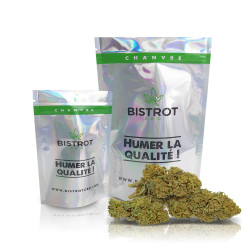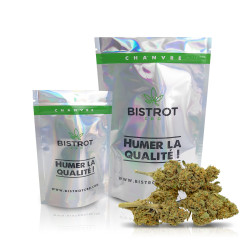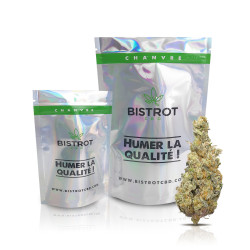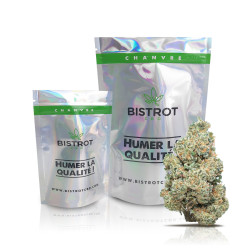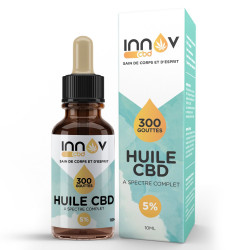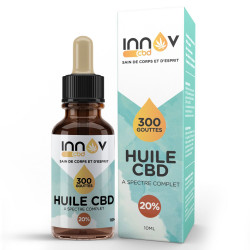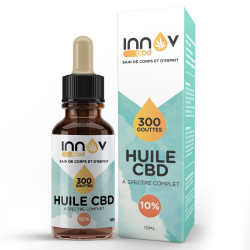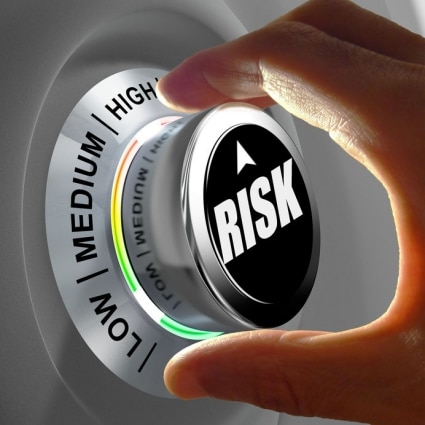
For a few years, in France and in the rest of the world, we hear more and more about “light cannabis”. This term is used to refer to a product containing cannabidiol (CBD). It refers to this plant so stigmatized that is cannabis (hemp). As a result of this confusion, this cannabis still often leads to controversy. Indeed, the word “cannabis” almost systematically refers to weed, grass, weed, marijuana, ganja and other terms designating this well-known drug!
The marketing of CBD products (
hemp oil
resin, e liquids with CBD…) seems then for some:
- something that should be illegal
- because it is dangerous
- since it comes from a stupefying plant according to the French law.
In reality, CBD is a compound of hemp. But, it is not this molecule that has earned cannabis its place on the list of narcotics. Alas, beliefs are tenacious! And as a result, products containing CBD are still in the news for a long time.potential anger.
What is really going on: Are there any dangers to consuming CBD?
A little tour around the cannabinoids CBD and THC
A plant such as cannabis contains many active compounds:
- cannabinoids,
- terpenes
- and flavonoids.
Among the best known and most concentrated cannabinoids are THC (tetrahydrocannabinol) and
CBD
(cannabidiol).
THC acts directly on
cannabinoid receptors
our body. As a result, it interferes with their normal functioning. On the other hand, CBD does not disrupt the endocannabinoid system. It would even stimulate it! It is therefore the harmful psychotropic effects of THC that have demonized cannabis. Indeed, industrial hemp (textile and building) has never created a controversy. However, it is also cannabis. It is all a question of varieties and therefore of genetic composition. Well, for CBD, it’s the same thing!
To be legal, CBD products found on the market must come from varieties of hemp authorized by the order of August 22, 1990 (1). These varieties have as main specificity:
- a THC level lower than 0,2%.
Given their residual contents of psychotropic substance (THC)(THC), their consumption does not cause high or euphoric effects.
Opinions and testimonials on CBD
In November 2017, a WHO report, executed following a meeting of drug addiction experts, clarified the health situation of CBD:
- If this molecule can in no way be considered at the moment as a drug (studies in progress), it would not lead to any addiction and would not be harmful to health (2).
Based on this report and on the many testimonies of consumers of CBD products (oils, liquids for an electronic cigarette, seeds, flowers, balms, …), this substance extracted from cannabis would not present any danger.
Side effects and dangers of CBD
As the saying goes, “the exception proves the rule”. In fact, some scientific studies and rare testimonies reveal more or less important side effects of CBD:
– If the benefits of CBD are very diverse according to the opinions (anti pain, relaxation of the body and mind, …), the decrease of anxiety and insomnia are the main virtues that come back unceasingly in the testimonies of consumers. This muscular relaxation that CBD provides can sometimes cause for sensitive people, a slight drowsiness putting a person in a vaseous state making it unfit for concentration. If this effect may seem non-existent for CBD users, it is however not recommended to consume it just before undertaking an activity requiring concentration, such as driving, in order to avoid all risks of accidents.
Medical advice and CBD
The National Agency for Medicines and Health Products (ANSM) publishes in January 2019, an information point regarding the use of CBD in the treatment of epilepsy :
- “While it may be of interest in the treatment of some severe forms of epilepsy, CBD has psychoactive effects, can be potentially toxic to the liver, and is likely to increase body levels of certain drugs, especially anti-epileptics, with the risk of increasing their toxicity. ” (3)
Scientific research published in April 2019 in the journal “Molecule” supports this point of information. Large doses of CBD are administered to mice to test its potential toxicity. The overdose of CBD undergone by the animals reveals important hepatic disorders (4) being able to lead to the death in certain subjects.
CBD is not addictive. There is no need to increase the recommended optimal dose. Indeed, nothing will happen in addition! An overdose of CBD causing liver intoxication in humans is therefore unlikely.
CBD does not reveal any toxicity as a pure molecule. However, it can potentially interact with pre-existing drugs. So beware of self-medication! This practice can sometimes be harmful to your health.
Before taking a CBD product as a therapeutic treatment, it is preferable to inform your doctor beforehand.
Contra indication of CBD
CBD has hypotensive properties. Therefore, its consumption should be avoided by people with low blood pressure.
Due to a lack of hindsight and extensive studies on the development of the fetus in the presence of cannabidiol in the body, it is not recommended that pregnant women take CBD products. And this, whatever their form (balm, hemp seeds, cannabis oil, …).
For obvious reasons, the sale of CBD products from specialized shops is prohibited to minors. Only doctors can, Since the beginning of December 2018, prescribe a treatment such as
Epidyolex
. Indeed, the use of CBD-based drugs such as Epidyolex, is authorized temporarily and by name by the ANSM (ATU: Temporary Use Authorizations) in certain severe forms of epilepsy in children.
Weight loss as a danger of CBD?
Some side effects are sometimes listed among user testimonials:
- nausea,
- temporary numbness,
- diarrhea,
- irritability
- and changes in appetite
If these remarks are not harmless, it is important to remember that paradoxically, CBD is often used to fight against these discomforts. Once again, some exceptions prove the rule!
The benefits of CBD
Ok! This list of potential dangers of CBD listed above can be scary! However, it is necessary to take all the criteria into account before crying wolf!
In most of the stated disorders, the dose of CBD ingested (low, optimal, overdose), the quality of CBD products and the type of consumption (cigarette, inhalation, vaping, …) are very influential factors:
- In the same way that too much chocolate is disgusting, taking too much CBD can potentially cause drowsiness or nausea.
- A CBD product of poor quality, whatever it is (hemp oil, cannabis flowers, seeds, CBD resin, …), of which we know neither the origin, nor the manufacturing process, can generate risks. But the culprits are the chemicals (pesticides, CBD booster, solvents, …) potentially present, not the CBD. It is very important when buying CBD products that the store can provide traceability information (from the variety of cannabis used to the finished product). If in doubt, skip it! In addition to health problems, you could be buying a narcotic product (THC level above 0.2%) and putting yourself outside the law.
- For smokers, consuming cannabis flowers or resin in a cigarette will cause the same vascular, respiratory and carcinogenic risks as tobacco (combustion phenomenon). Inhalation, vaporization, vaping, ingestion and skin application are the preferred methods of absorption. Get the most out of the benefits of CBD, without putting your health at risk. It’s not bad, is it?
In France as in many countries in Europe, the consumption of CBD products is booming. Finally, when we count the majority of opinions concerning the side effects of this use, the most common answer is, that there are none! Non psychotropic, CBD does not cause a change in the state of consciousness. It also does not lead to addiction or dependence. Finally, it has no proven toxicity.
To conclude…
At the moment, CBD is not a drug. But, it is not a medicine either! However, numerous studies have revealed its benefits. France should also, from the beginning of 2021, set up supervised tests on patients, with cannabis as a therapeutic treatment. It is clear that CBD still has a long way to go.
FAQ: The dangers of CBD
[sp_easyaccordion id=”10510″]
References:
- Order of August 22, 1990 implementing Article R. 5132-86 of the Public Health Code for cannabis: https: //www.legifrance.gouv.fr/loda/id/JORFTEXT000000351447/2020-10-09/
- WHO Committee Report, November 2017: https://www.who.int/medicines/access/controlled-substances/5.2_CBD.pdf
- ANSM epilepsy and CBD briefing on January 11, 2019: https://ansm.sante.fr/S-informer/Points-d-information-Points-d-information/Epilepsie-l-ANSM-alerte-sur-les-dangers-lies-a-l-utilisation-de-produits-contenant-du-cannabidiol-vendus-notamment-sur-Internet-Point-d-information
- Hepatotoxicity of a Cannabidiol-Rich Cannabis Extract in the Mouse Model by Laura E. Ewing 1,2, Charles M. Skinner 1,3, Charles M. Quick 4, Stefanie Kennon-McGill 1, Mitchell R. McGill 1,2,3, Larry A. Walker 5,6, Mahmoud A. ElSohly 5,6,7, Bill J. Gurley 3,8 and Igor Koturbash 1,3, Study published in the journal Molecule, April 2019: https://www.mdpi.com/1420-3049/24/9/1694/htm
